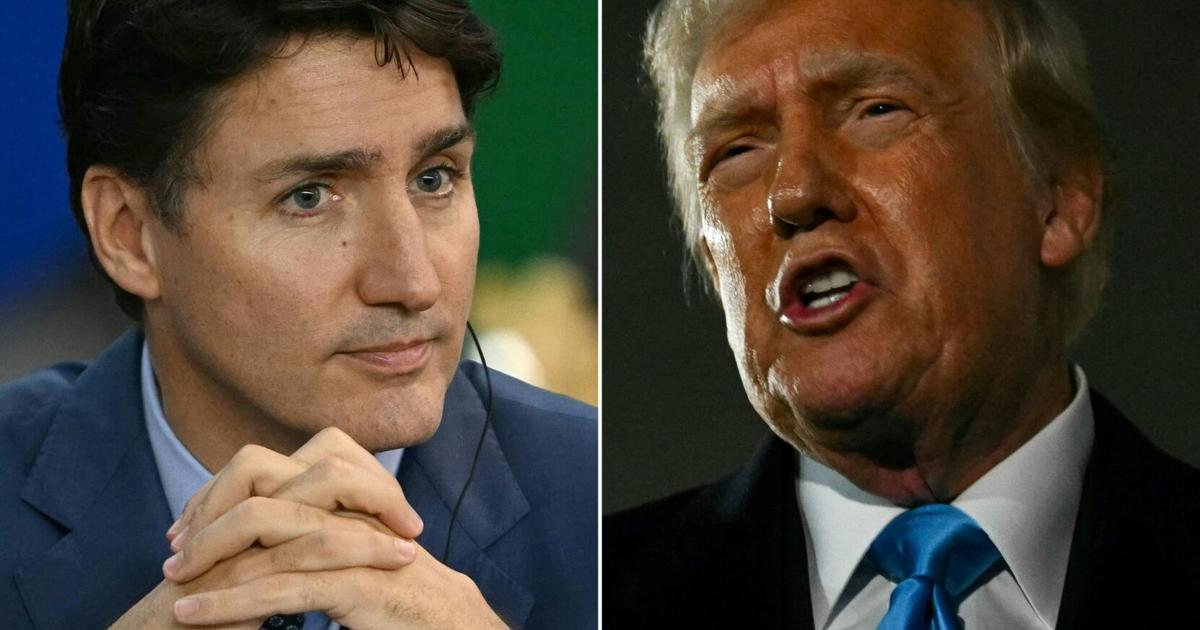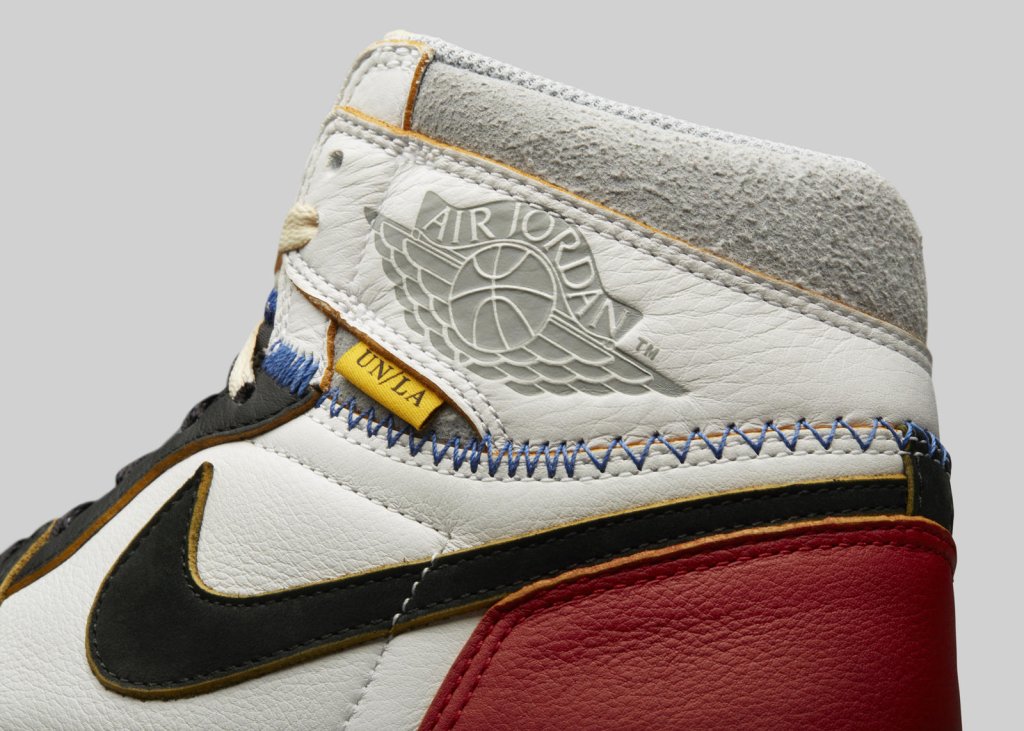American President Donald Trump raised a long list of complaints against Canada and said the Canada-U.S. boundary could disappear when he spoke with the prime minister Monday, according to details Justin Trudeau revealed behind closed doors on Friday, the Star has learned.
The Star first broke news that Trudeau told a group of nearly 200 business, industry and union leaders that Trump’s statements about annexing Canada are not a joke, and are driven in part by his desire to benefit from Canada’s critical minerals.
But there was much more to Trudeau’s revelations about his high-stakes call with the U.S. president hours before punishing tariffs were set to take effect — including that Trump suggested breaking a 1908 boundary treaty, was dismissive of Canada’s contributions to NORAD, and rhymed off a litany of irritants that the White House has with Canada, according to five sources who were in the room.
All had been invited to Toronto to participate in the economic summit billed as a way to share information and plot tactics and strategy for the weeks ahead, in the hopes Canada can ultimately stave off U.S. tariffs permanently.
In a series of candid comments that were caught on a hot mic and heard by the Star, Trudeau first inquired if the media were out of earshot, saying, “Are we safe? Excellent.” He then said, “I suggest that not only does the Trump administration know how many critical minerals we have but that may be even why they keep talking about absorbing us and making us the 51st state.”
“They’re very aware of our resources, of what we have, and they very much want to be able to benefit from those,” Trudeau said in answer to a question from the floor, after media had been ushered out.
“But Mr. Trump has it in mind that one of the easiest ways of doing that is absorbing our country, and it is a real thing,” Trudeau added.
A portion of Trudeau’s closed-door comments was inadvertently broadcast. A worker was ordered to pull the plug on the speaker after staff realized the session was still audible.
“When the PM made that comment, you could have heard a pin drop,” said Gary Sands of the Canadian Federation of Independent Grocers.
Trudeau went on to say Trump came armed with list of trade and other irritants, and pointed to a 1908 treaty between the United States and Great Britain that established the 49th parallel as the boundary between the U.S. and the then-Dominion of Canada, suggesting it could be erased.
Trump’s 1908 treaty reference sent Trudeau and his aides scrambling during the call to “Google it” in order to understand what the president was talking about, according to the sources who spoke on condition they not be named.
According to sources, Trudeau said he replied to Trump that the treaty was replaced by the Canadian Constitution. He also reminded the president that Trudeau’s father, former prime minister Pierre Elliott Trudeau, had patriated the constitution from Great Britain to make it clear that Canada has sovereignty over its own territory.
Trudeau said Trump appeared to have at hand a memo that the federal government believes was drafted not by Trump’s cabinet secretaries and nominees — whom Canadian ministers have been dealing with and who have not flagged all those concerns — but by the White House, and that there were some errors in it.
One of the complaints Trump raised on the call, according to a source, was an erroneous claim that U.S. banks can’t operate in Canada, an assertion Trump first made while speaking to reporters on Monday. The Canadian Bankers Association refuted that, and says 16 U.S.-based bank subsidiaries and branches with around $113 billion in assets are currently operating in Canada.
Trudeau told the group that Trump raised with him Canada’s level of defence spending, and questioned whether Canada even does “anything” on defence and the North American Aerospace Defense Command (NORAD), which provides joint command and air defence systems on the northern half of the continent, according to sources.
Trump did not appear to have been briefed in detail on Canada’s $1.3-billion border plan, Trudeau said to his audience, although Canadian ministers and diplomats who have presented it to Trump’s cabinet secretaries and nominees say they’ve been assured that the president had been told of Canada’s plan.
Three sources said Trudeau relayed to them some of Trump’s comments in the aggressive tone the president had used on the call, with one saying it was a “pretty good” Trump impression, and another characterizing it not as an imitation but as Trudeau recalling what the president said to him.
Trudeau said Trump’s cabinet secretaries all support the president, but added that they are also thoughtful in listening to Canada’s arguments, and that lines of communication into the White House are still chaotic as the new administration settles in.
In December, the Trudeau government pledged to tighten border security to address Trump’s purported concerns about illegal fentanyl smuggling and undocumented migrants that he claims are “pouring” across the Canada-U.S. border — even though Ottawa says Canada is not a significant source of either.
Trudeau told Trump on Monday that his Liberal government would throw in another $200 million to fight organized crime and fentanyl smuggling, and would appoint a “fentanyl czar,” add Mexican cartels to the list of terrorist entities, and assured the president that 10,000 front-line personnel “are and will be” working on border security in this country.
After that, Trump agreed to delay his decision to implement 25 per cent tariffs on Canadian products with a 10 per cent levy on Canadian oil until March 4. Trump posted on social media that he was “very pleased with this initial outcome” and the tariffs would be paused “to see whether or not a final Economic deal with Canada can be structured.”
That’s raised concerns that he may wield the tariff threat in order to force changes to the Canada-U.S.-Mexico free trade agreement, which Trump has ordered his officials to review and report by April 1 on how to correct “unfair” trade practices.
In the portion of the prime minister’s remarks to the summit that were open to media, Trudeau won applause when he emphasized the need to drop interprovincial trade barriers.
“It’s about time we had genuine free trade within Canada,” he said.
The prime minister said all premiers support the idea, but there are “challenges within bureaucracies” which insist, “‘It’ll be hard to recognize teaching certificates from one part of the country versus another,’ ‘It’ll be hard to get proper labour mobility,’ or ‘There’s a reason we have a specific tire requirement on our trucks for our province, or a specific need for a first aid kit in those trucks.’”
Speaking to reporters, Labour Minister Steve MacKinnon said he was inspired to see that everyone at the summit was committed to working to improve Canada’s strategic advantages, adding, “The message I want to send to Canadians is this country is strong. Don’t screw with us.”
Progressive Conservative Leader Doug Ford, running for a third term as Ontario premier in a snap election he called for Feb. 27, scoffed at the summit as he campaigned Friday at an auto parts plant in Scarborough.
“I don’t need to be in a room looking at the people I’ve talked to 1,000 times,” Ford told reporters.
“You know what the Trump administration wants? They’ve been very, very clear,” Ford said. “They need to tighten up the border.”
“Let’s stop the flow of drugs going back and forth across the border,” he added, recommending retired general Rick Hillier as the fentanyl czar.
“I’m sick and tired of politicians talking. Let’s get the helicopters in the air, the planes and the boots and the drones and the ships going up and down the water. I’m done with the talking. Let’s show some action.”
Industry Minister François-Philippe Champagne said the government isn’t rethinking its critical minerals strategy which he has pitched as a way to deepen co-operation with the U.S. He said it gives Canada “leverage” in its talks with Trump.
“They need us more than ever,” he said “They understand, particularly the military guys … that they cannot rebuild their industrial base, their defence, military industrial base, without Canada.”
In an interview, Beth Burke, head of the Canadian American Business Council, said most Americans don’t believe Trump is serious about his annexation threats, but see them as a negotiating strategy.
“While I know it is wildly offensive to Canadians, I think a lot of Americans think he’s joking and see it as a joke and don’t fully understand and appreciate the back story of how offensive it is,” Burke said.
With files from Rob Ferguson



